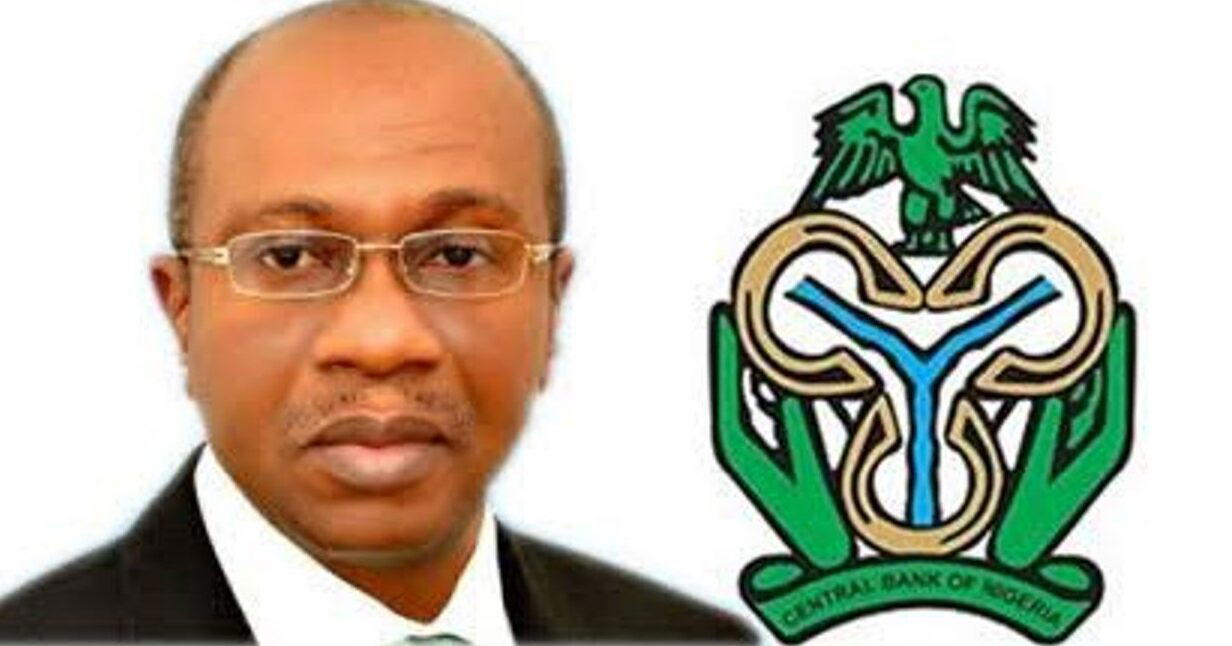
Godwin Emefiele, CBN Governor.
By Emma Ujah, Abuja Bureau Chief
The Central Bank of Nigeria, CBN, has issued gender-mandated regulations to pave the way for more women at the top management levels in the banking industry.
The governor of CBN, Mr. Godwin Emefiele, disclosed this, yesterday, while addressing participants at a webinar hosted by the Deputy Governor in charge of the Financial System Stability, FSS, Directorate, Mrs. Aishah Ahmad, as part of activities to commemorate the 2022 International Women’s Day, IWD, by the apex bank.
A statement by the bank said Emefiele disclosed that he had issued a policy that required a minimum of 30 per cent of female representation on boards and 40 per cent at the top management level in the banking industry.
This, he said, was similar to the National Financial Inclusion Strategy recommending increasing female staff of microfinance banks to 30 per cent.
He said CBN had since surpassed affirmative action, with 32 per cent of the total workforce being female.
According to him, thebBank, in an effort to increase representation of women in the industry, has been using the gender diversity model as part of the criteria for approving the membership of boards of institutions under its regulatory purview.
He emphasized that such gender mandates were necessary to break the bias in the Nigerian banking industry, stressing that eight of the 23 bank CEOs, representing 35 per cent, are women, which is way above the global average.
Emefiele stated further that the CBN, under his watch, had “demonstrated its commitment to diversity and inclusiveness by designing and implementing a wide variety of initiatives, programmes and interventions to promote entrepreneurship, reduce poverty, generate employment and deepen financial inclusion for women.
The governor disclosed that females had benefited hugely from the bank’s intervention programmes, such as the Agribusiness Small and Medium Enterprise Investment Scheme (AGSMEIS) and the COVID-19 Targeted Credit Facility (TCF). Specifically, he said that out of N134.67 billion disbursed to 37,273 AGSMEIS beneficiaries, as of January 2022, 33 per cent (N44.1 billion) went to 12,511 female beneficiaries.
Similarly, out of N349.51 billion disbursed to 712,442 total beneficiaries under the TCF, he said 45 per cent (N159.21 bn) went to 330,128 female beneficiaries, adding that the MSME Development Fund (MSMEDF) was designed to allocate at least 60 per cent of the fund to women and women-owned enterprises of which 60.3 per cent of the of 229,579 beneficiaries are women. Furthermore, he said out of the 211,306 financial statements currently registered in the collateral registry, 92,091, representing 43.6 per cent were female borrowers.
Citing reports to support claims about gender parity in the workplace among other issues bordering on discrimination, he said that the CBN recognized the positive impact of gender parity on the economy, achieving the SDGs and climate targets.
Earlier in her welcome remarks, the Deputy Governor, Financial System Stability, FSS, Mrs. Aisha Ahmad, said the commemoration of the International Women’s Day was an opportunity to celebrate women for their progress, achievements and contributions to the society.
Speaking on the campaign theme of this year’s celebrations, she noted that age, ethnicity, religion and other biases had to be broken for women to realize and fulfill their full potential without which a sustainable future would not be achievable.
In her address, the Minister of Finance, Budget and National Planning, Mrs. Zainab Ahmed, said the federal government was prioritizing domestic revenue mobilization in its efforts toward addressing fiscal constraints.
He said: “Recognising that Nigeria is contending with increasing fiscal and domestic revenue constraints, the federal government is prioritising fiscal policies and reforms aimed at not only providing short and medium term relief but also at sustainability addressing the longstanding challenge of domestic revenue mobilisation.”
Speaking on the theme, “Gender Equality Today for A Sustainable Tomorrow”, the minister argued: “The economic and social empowerment of women and girls is critical to our collective vision of a prosperous and resilient Nigeria.
“If we are to have a stronger and more inclusive economy, it is crucial that we take a long-term and strategic approach to ensuring that women are economically empowered.
“We must continue working towards the development and implementation of policies, regulatory frameworks, and programmes that are inclusive and gender-sensitive; and we must remove the socio-economic and cultural barriers that prevent women from participating fully in society and from reaping the economic benefits of their participation.”
Disclaimer
Comments expressed here do not reflect the opinions of Vanguard newspapers or any employee thereof.